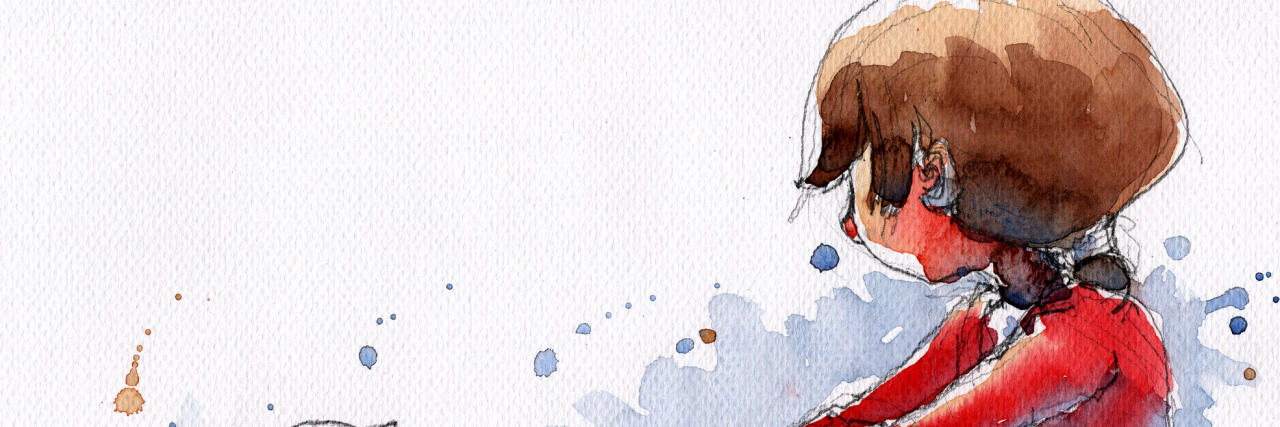Without a doubt for me the hardest thing about my chronic illness is attempting to explain it to others, and that is especially hard when you are meeting new people. The circumstances can be variable: new people at work, a new school, dating, or just making new friends. It’s always hard to explain to someone to the extent that is necessary what it means to have a chronic illness.
• What is Ehlers-Danlos Syndrome?
• What Are Common Ehlers-Danlos Syndrome Symptoms?
For me the strangest part is trying to explain something as simple as what my day has been like. It’s a simple enough task, but whether I was having a “good” day or a “bad” day in regard to my illness, everyone who lives with an illness knows — no day is symptom-free. And so, then when you are tying to actually share the details of your day, how do you nonchalantly explain that you dislocated at least four different joints in your body throughout your day and one of them wouldn’t correct itself so you’ve been walking around with a dislocated collar bone for the past 12 hours? Because these things are big, important parts of my day, but they are also not surprises and they are not day-shattering. There will be days when one injury or another definitely throws a wrench in my plans and messes up my day, but the more common effect is that I just deal with it and continue on. Things that would ordinarily send people to the hospital, I face two to three times a day and so they are just another thing that happened.
The conversations that follow are often amusing, as people try and comprehend the fact that I could be standing in front of them speaking as though nothing is wrong, meanwhile describing how my entire spine has shifted out of place, and the answer to the question is almost always “no, they won’t be able to help me at the hospital. I need to wait for it to resolve itself or go see my physical therapist who knows all about EDS.” I just continue on. Sometimes slightly slower and grumpier than other times (depending on how much it has impacted my sleep, whether it has caused other noticeable injuries, and whether or not it has been able to resolve itself).
But while it can be entertaining taking in people’s shocked reactions to the oddities of my illness and the “emergencies” that have become run-of-the-mill for me, that conversation is always anxiety-filled. Whether it’s an inquiry from someone brand new or someone I’ve been getting to know — unless I know for certain that you won’t find what I’m saying to be too much to keep you in my life, I hesitate and I edit and I soften every story and every description. I downplay things even more and then later feel like I haven’t been honest.
I joke to people, “Oh yeah, I come with baggage” and laugh it off, but in reality it’s a literal warning (everywhere I go, there follows a bag of medications and other medical supplies). I need them every single day and every single day I face the anxiety of having to tell someone new something about my condition that I worry will stop them from wanting to be close to me. It’s a burden that doesn’t get spoken about. At no point during any of my diagnostic appointments have any of my doctors said, “and six months from now, you’ll be at a holiday party at work and meet the new employee, and they will offer you just about every possible gluten-containing food and you’ll have to decide whether to come off as just plain rude or if you’ll explain that you can’t eat it for pain management reasons (and that’ll open a lot of doors for more questions). But take this prescription twice a day and your symptoms might improve. See you in six months.”
The subsidiary conversations that we have about our illnesses are just as important as those we have with our healthcare providers because it’s those conversations that truly determine our quality of life. Who we’re close to, how large our friend group is, how challenging it is to organize social plans around your condition — it all starts with conversations that are terrifying to begin with.
I am perfectly comfortable telling a room of 100 people a story about my illness, but as soon as I have to tell that same story one-on-one, in a situation where there feels like there could be loss, I freeze and question myself and how much I should share.
My answer of the moment is that we should be sharing all of it. People need to hear what we live with on a daily basis. They need to hear the complexities of medicine and healthcare and life in general. But I also know that when it truly becomes time to do just that — it can be terrifying.
Getty photo by Archv

